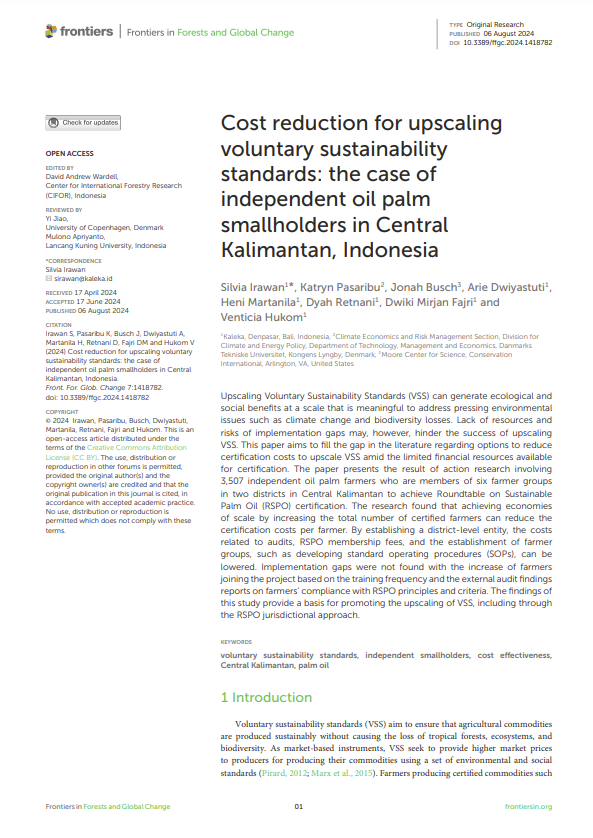Cost Reduction for Upscaling Voluntary Sustainability Standards: The Case of Independent Oil Palm Smallholders in Central Kalimantan, Indonesia
This paper aims to fill the gap in the literature regarding options to reduce certification costs to upscale Voluntary Sustainability Standards (VSS) amid the limited financial resources available for certification. Upscaling VSS can generate ecological and social benefits at a scale that is meaningful to address pressing environmental issues such as climate change and biodiversity losses. Lack of resources and risks of implementation gaps may, however, hinder the success of upscaling VSS. The paper presents the result of action research involving 3,507 independent oil palm farmers who are members of six farmer groups in two districts in Central Kalimantan to achieve Roundtable on Sustainable Palm Oil (RSPO) certification.
The research found that achieving economies of scale by increasing the total number of certified farmers can reduce the certification costs per farmer. By establishing a district-level entity, the costs related to audits, RSPO membership fees, and the establishment of farmer groups, such as developing standard operating procedures (SOPs), can be lowered. Implementation gaps were not found with the increase of farmers joining the project based on the training frequency and the external audit findings reports on farmers’ compliance with RSPO principles and criteria. The findings of this study provide a basis for promoting the upscaling of VSS, including through the RSPO jurisdictional approach.
